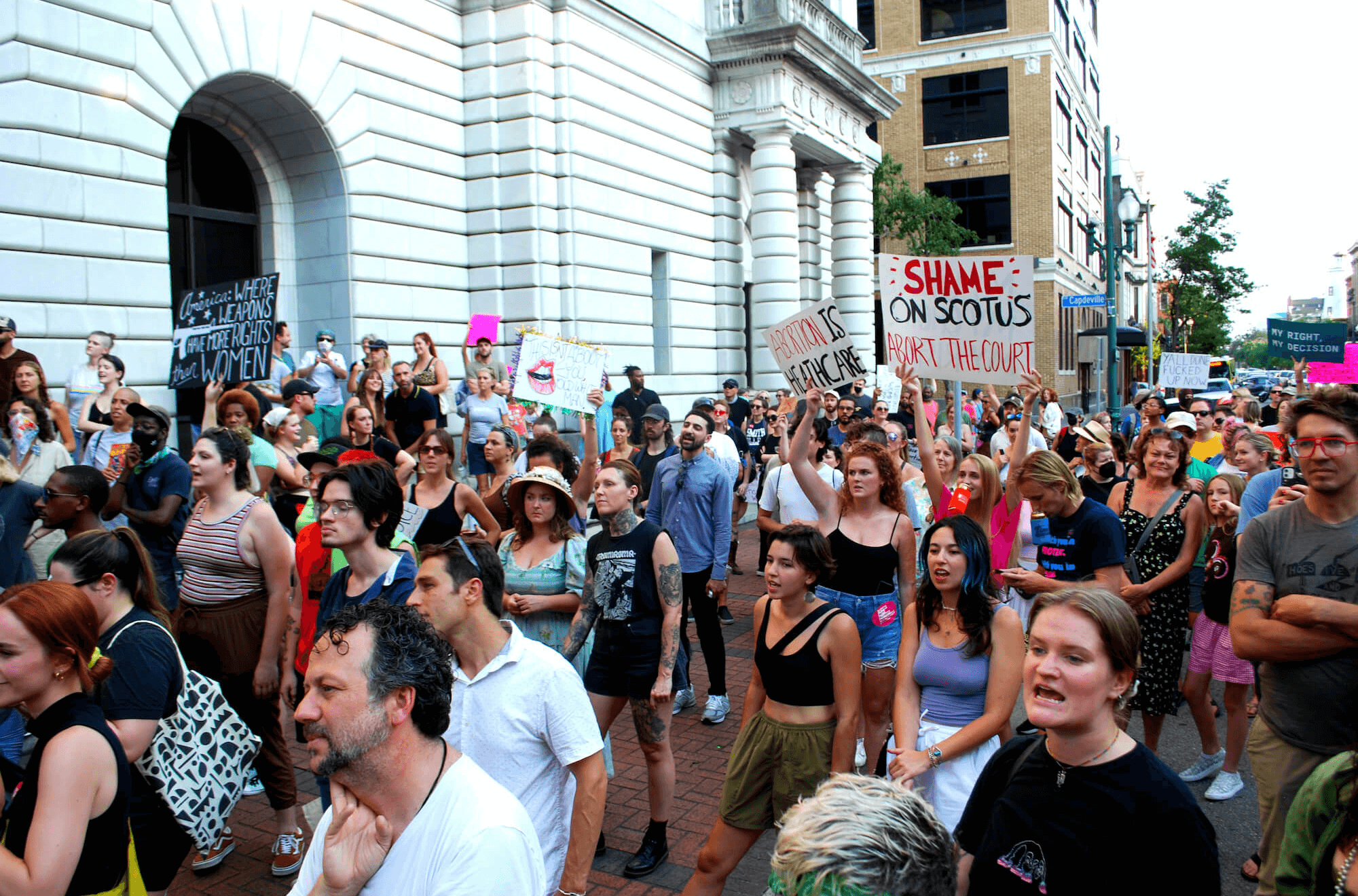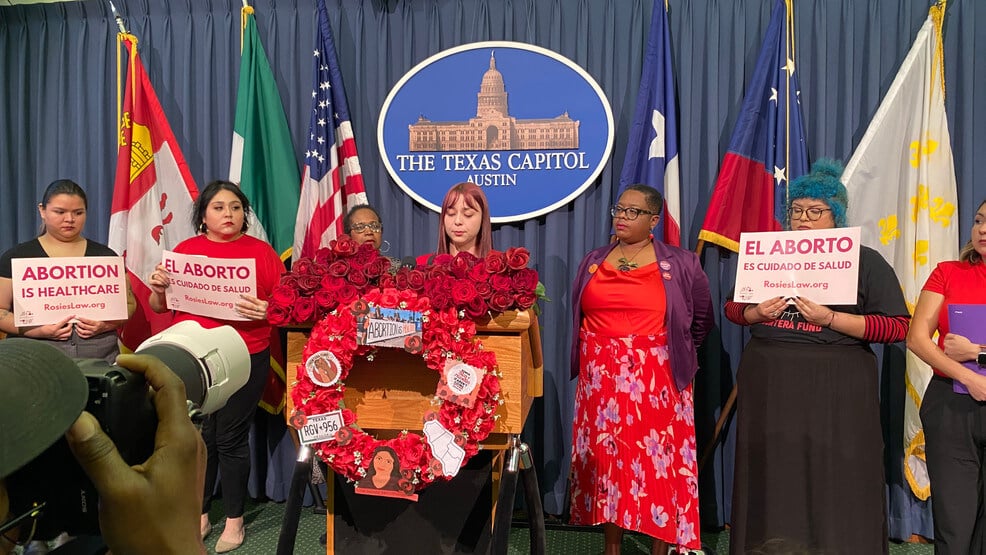
Louisiana: How US abortion organisers are learning from Honduran activists
Louisiana demonstration in response to state ban
Abortion bans are now in place in a dozen states across the US, including Louisiana and every state bordering it. Abortion is illegal in Louisiana. All abortion clinics in the state have closed. While abortion is theoretically permitted for non-viable pregnancies, in practice, terminations on these grounds have already been denied to multiple women, including a woman carrying a headless fetus.
While the statute criminalising abortion exempts pregnant women from prosecution, legal experts say this does not offer meaningful protection from determined prosecutors. Those who assist a termination, such as the new generation of illegal activists and healthcare providers, risk up to 15 years’ imprisonment. Undocumented women suspected of facilitating an abortion risk both criminalisation and deportation. Lawyers with If/When/How, a network of legal professionals supporting reproductive justice, warn of a worst-case scenario in which people facilitating abortion in Louisiana could now technically be charged with the homicide of someone under 12 – a crime that carries the death penalty there.
According to If/When/How’s research on criminalised abortions since 2000, published last August, even in states where laws did not specifically criminalise abortion, some women have still been charged under statutes related to the mishandling of human remains or practising medicine without a licence.
But activists are fighting back, forming groups and networks and learning from others who have been dealing with this situation for years. In Louisiana, that includes activists from Honduras, where abortion has been completely outlawed since 1982. That is in part because New Orleans is home to the largest Honduran-American community in the US, a legacy of successive waves of immigration – most recently following Hurricane Katrina in August 2005, when an estimated 100,000 Latinos/as came to rebuild the stricken city.
“Even within very, very restrictive environments like ours, we still find ways” to exercise the right to choose, an activist from Honduras says, referring to underground networks in Honduras. “Everyone in the US that are seeing their rights being cut back: people there will find a way, too,” she said.
SOURCE: AlJazeera, 19 February 2023 + PHOTO: Delaney Nolan/Al Jazeera
+++
Texas lawmakers unveil ‘Rosie’s Law’: legislation re funding abortion and other SRH care

A new bill is bringing abortion access and emergency contraception back into the spotlight. State Senator Sarah Eckhardt (D-Austin) is one of the lawmakers supporting the bill, called Rosie’s Law. Rosie’s Law is named after a McAllen, Texas, mother who died from an unsafe abortion in 1977. Organizers say that Medicaid would not cover her care at her local clinic.
“Texas does not require insurance carriers, including Medicaid, to cover prescription contraception or voluntary sterilization,” said Sen. Eckhardt, “and now with a near total ban on abortion, the consequences of not having access to these health care services are even higher.”
The bill would require Medicaid and private insurance to provide full coverage of emergency contraceptives, vasectomies, and abortion care. Organisers say over 3.5 million Texas women, even with private insurance, are unable to access complete reproductive healthcare due to barriers.
SOURCE: CBS Austin, by Jessica Taylor, 6 March 2023



